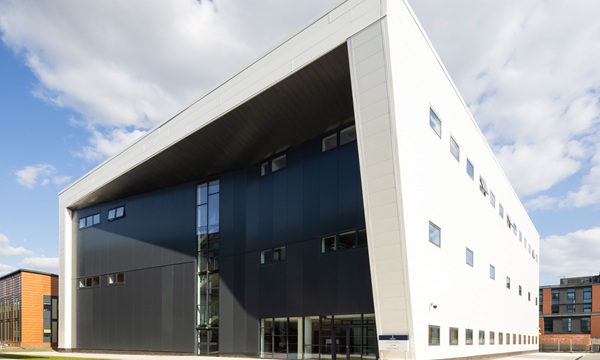
GUEST COLUMN:
Victoria Marsh-Durban
Director, Custom Organoid Services
Molecular Devices
South Wales stands poised to spearhead advancements in Medtech, particularly when it comes to drug development.
At the heart of this transformation is our new manufacturing and R&D facility in Cardiff, which has come about thanks to significant investment by our parent company, Molecular Devices, a U.S.-based leader in biotechnological advancements.
Our state-of-the-art facility is specifically designed for the production of organoid models. These models are essentially three-dimensional cell cultures, or “mini-organs,” that originate from stem cells and are akin to miniature, simplified versions of biopsies obtained from patients.
This innovative technology marks a significant departure from traditional two-dimensional cell line models, the latter of which are nothing like cells within the human body and so are often inadequate in predicting drug responses in humans.
Organoids offer a more accurate and realistic representation of how drugs will perform within the human body, heralding a new era in the drug development pipeline.
Traditionally, the journey from concept to pharmacy shelves has been a lengthy, costly, and arduous process, primarily due to the limitations of older technologies.
Recent studies have highlighted that integrating organoids into the drug development process can halve the time needed to bring new drugs to market—from 10 years to just five. This acceleration is not just about speed but also about enhancing the precision of drug efficacy and safety evaluations before clinical trials.
One of the significant challenges in utilising organoids has been the production scale required to test numerous compounds effectively. Our facility in Cardiff addresses this challenge head-on by manufacturing large batches of organoids; this enables extensive drug testing to be carried out by our customers, which are pharma and therapeutic development biotechs. This scale of production is not just a technical achievement but a strategic advantage that allows for more reliable data on potential treatments.
The implications of this are profound. By increasing access to organoids earlier in the drug discovery pipeline, the time and cost associated with drug development is reduced, and the pace at which new therapies are made available to patients is increased. Moreover, the precision of organoid-based testing means potentially higher success rates in clinical trials, paving the way for treatments that are not only effective but also safer.
South Wales is in a great position to lead in this exciting frontier. With a rich history of industrial innovation and a growing cluster of biotechnological expertise, the region is becoming a hub for next-generation medical technology. As we continue to expand and collaborate with academic and industrial partners, we aim to continue to build on an ecosystem that is conducive to innovation and capable of transforming the global landscape of healthcare.











